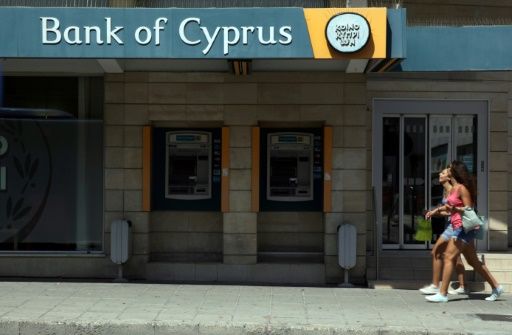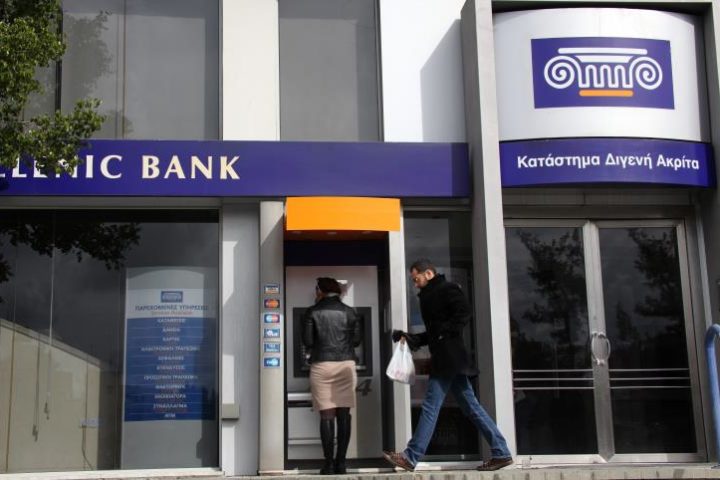The island’s two largest lenders, Bank of Cyprus and Hellenic Bank, actively pursuing sales of €4 bln of bad loans would improve their asset quality metrics, accelerating the derisking of their balance sheets, a credit positive, said Moody’s.
“Bank of Cyprus, which accounts for 37% of total banking system assets, and Hellenic Bank, which accounts for 28%, currently have very weak asset quality, a key constraint on their solvency profile and overall credit strength,” said a Moody’s analysis.
As of 30 September 2019, nonperforming exposures (NPEs) comprised 31.3% of gross loans at Bank of Cyprus and 25.2% of gross loans at Hellenic Bank, compared with a 2.5% average for European banks as of the same date.
“Both banks have greatly improved their very weak asset quality metrics since year-end 2015 when NPEs accounted for 61.8% of gross loans for Bank of Cyprus and 59.2% of gross loans for Hellenic Bank.”
The reductions were achieved organically through restructurings and collections, write-offs and debt-for-asset swaps, facilitated by strong economic growth and recovery in the real estate market.
Moody’s said significant improvement for BoC was achieved with the capital accretive sale of problem loans in 2018, which paved the way for further transactions, while for Hellenic improvements have been driven by the acquisition of mainly performing loans from Cyprus Cooperative Bank following its wind-down.
During the last two years, both banks also completed smaller scale transactions.
According to Central Bank of Cyprus Governor Constantinos Herodotou, BoC is pursuing a sale of €2.8 bln of problem loans, with the transaction potentially agreed as early as end of February.
Although the bank has not disclosed any amounts, it did disclose in its latest financial reports that it is in an advanced preparation stage of reviewing NPE reduction structures, which it expected to finalise in the first half of 2020 and that includes outright sales of a portfolio exceeding in total €2 bln.
Moody’s estimates, if the sale materialises, BoC NPEs to gross loans ratio would decline to 12.6%.
Part of the remaining problem loans could potentially exit NPE status during 2020-21, according to the bank’s estimates, or resolve through ESTIA, a government subsidy scheme, leading to an NPE ratio of less than 10% in the next 12-18 months.
For Hellenic Bank, the reduction, according to the governor, could amount to €1.2 bln, with no clarity around the completion of the transaction.
“If the transaction materialises, the NPE ratio could decline to 10.7%, excluding NPEs guaranteed by the government.
Hellenic Bank’s NPE ratio would also fall to less than 10% with the help of ESTIA (the bank received applications for €130 mln housing NPEs), while the bank also expects certain NPEs to return to performing status,” said Moody’s.
NPE ratio below 20%
It said a €4 bln sale out of the €10 bln of NPEs would reduce the NPE ratio to below 20%, from 29% as at end August 2019.
Off-loading legacy problem assets is a key strategic priority for both banks.
“Eliminating the large stock of problem loans will reduce pressure on the banks’ capital and profitability through lower provisioning needs and improved asset quality.”
“It will also free up resources and managerial time that will allow an enhanced focus on business plans, which include digital and cost-cutting initiatives.”
The sales will also reduce the banks’ fees paid to servicing companies and consultants, employed to help reduce problem loans.
“Both banks have recently strengthened their capital levels (Common Equity Tier 1 ratio of 15.2% for Bank of Cyprus and 19.0% for Hellenic Bank at 30 September 2019), supporting their NPE reduction strategies, and we expect capital to remain above regulatory requirements after the sales.”
Moody’s argued the loan sales may negatively affect profitability because the price may be lower than the book value (gross loans net of provisions held), but “we expect the effect on capital to be largely neutral”.
“Bank of Cyprus’ last €2.8 bln transaction, priced at 48 cents to the dollar of the portfolio’s gross book value or 24 cents to the dollar of the contractual value, resulted in a loss of €150 mln, but had a net positive effect on capital of 60 basis points from the significant reduction in risk-weighted assets.”









